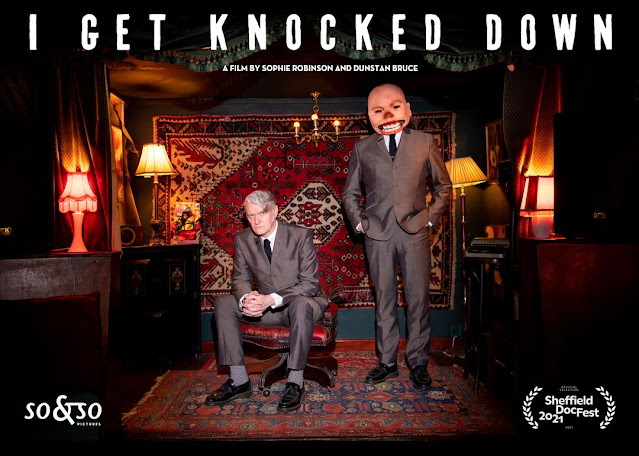Dupieux - also known as Mr Oizo to fans of 90s Levi's ads - returns to behind the camera with this pairing with The Artist's Jean Dujardin to tell the story of a man who, following his separation from his wife, becomes obsessed with his new Deerskin jacket. While staying in a small French village Georges, posing as a filmmaker, meets Denise (Haenel), a bartender and aspiring film editor who sees Georges as her ticket out of there. Unaware of Georges's precarious mental state, together they collaborate on his "avant garde" video diary as he forces strangers to give up their outerwear, with the aim that his jacket will be the only one left in existence, turning to murder to make sure the job is done.
Dujardin is fantastic as the pompous, preening Georges, forever enthusiastic about adding gloves, a hat, or another deerskin piece to his outfit and looking ever more laughable along the way. The jacket, even with all its tassels intact (a very important measure in fashion) is a horrible looking garment, but Georges's cocksure belief that he's standing out from the crowd as a new fashion icon is never undersold by Dujardin, delivering a great comic performance that's tapping into the rich vein of ridiculousness that exists in the easily mockable fashion for men of a certain age. Admittedly, dressing head to toe in deerskin isn't a fashion choice you often see, but is it really so different to mid-life crisis leather pants or wearing a James May-esque bold print shirt?There was perhaps an expectation that Dujardin would make a leap to Hollywood films after his, some would say, surprising Best Actor Oscar win for The Artist, but as fans of his work in the OSS 117 series will attest, he's completely at home and in his element here in this smaller, bizarre film that plays up to his charming doofus-like strengths. Dujardin plays Georges with an un-earned confidence in himself, portraying such a clueless, self-important lunatic who's convinced everyone around him is jealous of his cutting edge fashion, or as Georges would put it, his "killer style". Fans of Dupieux's previous work, in particular his sentient killer tyre film Rubber, will know what sort of humour to expect from him. This is a dark, often ghoulish comedy that revels in its unpredictability and shock value, generating lots of laughs from the sheer boldness of its character choices. As Georges falls deeper and deeper under the spell of the jacket which may slowly be exerting some sort of psychic power over him (it may all be a figment of his imagination), the film delights in delivering the horror beneath, as Georges efficiently (and hilariously) crafts a disturbingly effective murder weapon out of a ceiling fan.
There's a lot in Dupieux's work that goes far beyond the surface thrills, and Deerskin is no different. Not only is the dynamic between Dujardin's deluded killer and the much younger Denise (the always excellent Haenel) mocking that stereotype of a man who has hit a certain age and then found himself a younger woman, the choice of Dupieux to have Georges wait outside a cinema to kill off its patrons as they leave is a comic assault on his audience. If you think you're going to be safe and free from his pervasive ideas when you leave the cinema, think again. A delightful new addition to the "killer clothing" sub-genre, Deerskin is In Fabric for men in the throes of a mid-life crisis. Less off the rack as it is off the wall, it's an absolute gem of a film.
4/5








